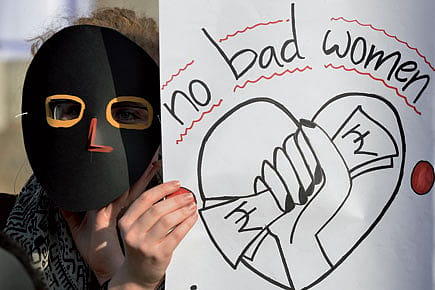Not Just a Moral Question

On the anger prompted by a court's observation that premarital sex is wrong
In a recent judgment related to a rape case where the man went back on his promise to marry a woman after having sex with her, a Delhi court observed that premarital sex was immoral. Dismissing the case, the court said that a woman should sleep with a man knowing what she was getting into. That much would have been understandable, but the court also added that all religions forbade premarital sex and it was wrong. That observation probably angered you if you are an educated urban liberal. Your unambiguous position would be that premarital sex is moral. To you, a consensual act between two adults being immoral would be absurd.
A couple of years ago, this principle came up while I was interviewing Michael Sandel, a moral philosopher who teaches a popular course called Justice at Harvard University. He pointed me to a case in Germany where a man, Armin Meiwes, had advertised for a person he could eat alive and found a volunteer. They went ahead with the consensual cannibalism. Meiwes was held for murder. Sandel asked me whether the principle that all consensual acts are moral would apply here too.
I said 'yes', but his point—that consensual acts can also be called into question—was evident. Having sex is, of course, not the same as eating a human liver, but once you accept the principle that consensus can be questioned, then you have to spell out why it is moral to have premarital sex. And that is an avenue to ever more complex questions, beginning with whether there is anything called 'morality' at all.
AIming High
20 Feb 2026 - Vol 04 | Issue 59
India joins the Artificial Intelligence revolution with gusto
There is also the question of whether there is a difference between premarital sex being 'not wrong' and being 'right'. If it is the latter, then you would expect parents and school teachers to actively encourage their children to have pre marital sex once they come of age; it would be a chapter in sex education. But this is not something you see anyone voicing, including those angry at the court's observation.
The reason the judgment angers some people is not morality, but the encroachment on individual freedom. If it was about morals, then the other part of the judgment—that women who have consensual sexual relations should not cry rape—is far more important to debate.
In a climate where political feminism is deciding policy and discourse, rape has become a topic on which no discussion is possible. On Wednesday, 8 January 2014, The Times of India carried a news item reporting that the Mumbai Police is going to ask for death sentences for the men accused of raping a young photojournalist at Shakti Mills' compound in August last year. But if you were to say the crime was not of the same degree as the rape and murder of the woman the paper calls Nirbhaya, that would somehow make you pro-rape. You would be thrown into that subset of patriarchal monsters who have no clue about the enormous travails that women in India undergo.
This is also why when a court makes a judgment on rape, the part that deals with the case itself is conveniently ignored because the filing of false rape cases is not something that should be spoken about. It is just collateral damage in the war for justice, and society must live with it. But there are always consequences when emotion replaces sound principles of law, as India has already experienced. After dowry deaths became the great evil to be eliminated by any means, Section 498a was inserted into the Indian Penal Code ensuring that if a wife made a complaint, her husband and his relatives could be put in jail rightaway without bail. It ended up as a negotiation tool for lawyers in divorce cases. No one disputes the rampant abuse of Section 498a, not even the most extreme feminists. But you will still find them defending it as something sprung out of noble intentions, which, as we all know, is also one way to hell.
